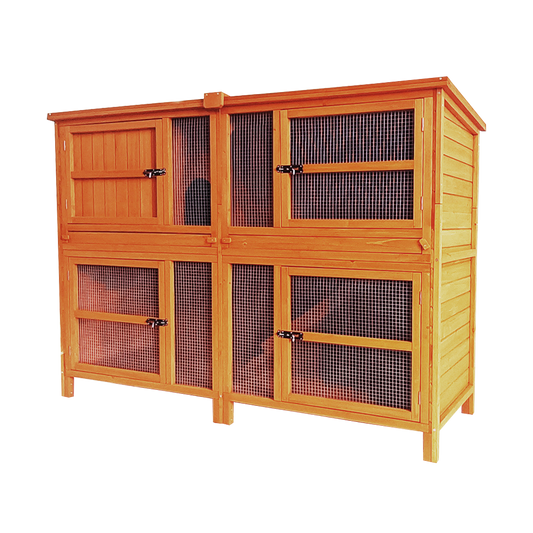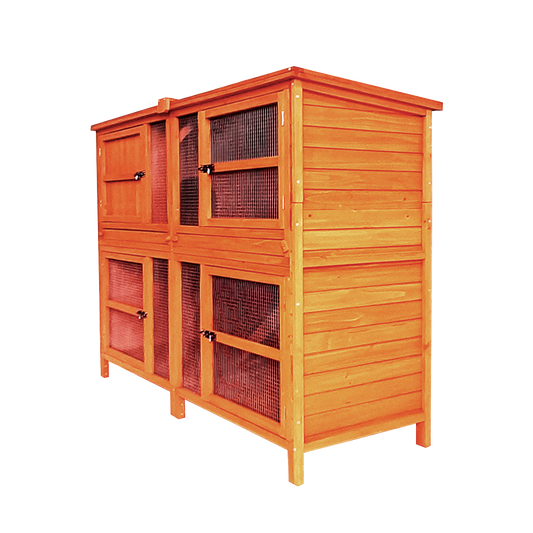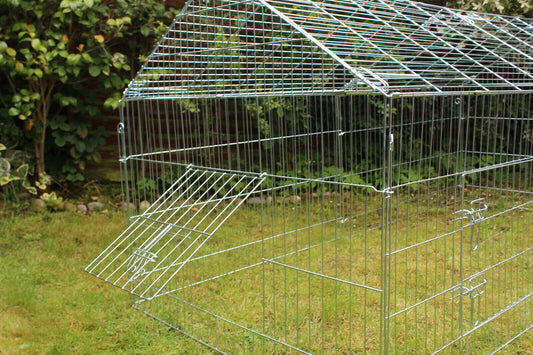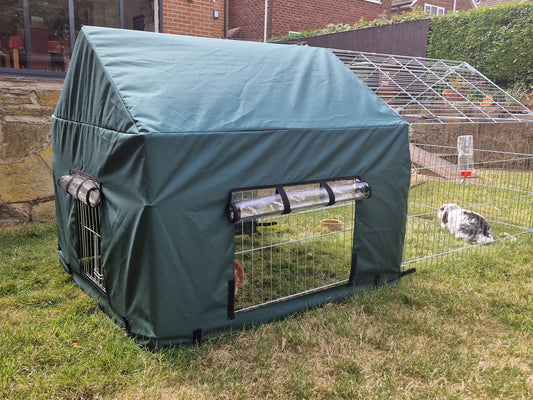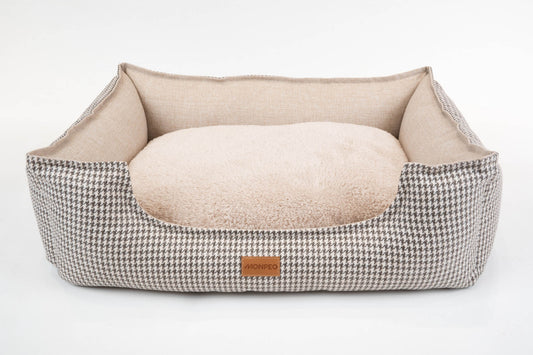Guinea pigs or cavies as they are officially known, are highly social rodents who come in a wide range of colours and coat lengths. They make sweet, amusing little pets and are a joy to watch.

Housing
Guinea pigs should have as much floor space as possible with hutches or cages being no less than 1.2m long by 60cm wide, but the bigger the better. They should also have access to an enclosed run to stretch their legs and give them a change of scenery, either outdoors or indoors depending on where your pet is kept. Guinea pigs do enjoy grazing so placing the run on grass usually goes down well.

Accessories
Accessorising your guinea pig’s home is the fun part as you can be as imaginative as you like. They like lots of hiding places such as tunnels, tubes and houses to hide and rest in as this makes them feel safe and secure. They also enjoy guinea piggy-safe chew toys to gnaw on and enjoy searching for their favourite guinea pig treats scattered around their home.

Bedding
Line the cage with pet-safe wood shavings, paper-based litter or straw to make a comfy and hygienic environment for your pet. Guinea pigs also need a diet high in fibre so always provide plenty of dust-free hay for them to nibble on as well as providing extra warmth. Carry out a daily spot clean of any soiled areas and then give the cage a thorough clean using a pet-safe disinfectant once a week. This should prevent any unwanted odours and keep your pet’s accommodation as clean and pleasant as possible which in turn will prevent health problems such as bumblefoot (caused by prolonged standing in dirty bedding) and fly-strike.

Diet
Guinea pigs require a diet of specialist guinea pig nuggets, fresh vegetables and a constant supply of dust-extracted hay and fresh water. Cavies lack the enzyme to produce vitamin C themselves so along with hay and nuggets, offer them a daily supply of vegetables rich in vitamin C such as kale, cabbage, spinach, broccoli, oranges and melons.

Indoors or outdoors?
These bubbly rodents can happily live either in or out provided they have the adequate accommodation. If kept outside, then they need plenty of bedding throughout winter to provide warmth as benefit from hutch and run covers. Guinea pigs are sensitive to extreme temperature changes so if kept inside the house ensure the cage is away from radiators and out of direct sunlight.

Companionship
Cavies are incredibly social animals so need to be kept in pairs or groups. If keeping the opposite sex together (and not intending on breeding) always ensure males are neutered to prevent accidental litters. They are very happy, friendly creatures and will usually chat away when they see each other which is very entertaining to watch.

Grooming
Coat length and colours vary greatly in guinea pigs. You have the long-haired variety such as the sheltie, peruvian, abyssinian, coronet etc. Short-haired such as the teddy, rex, white crested and then the hairless “skinny pigs”. Colours can include one or a mix of agouti, cream, lilac, black, chocolate, beige, golden and many more. Choosing the right type of guinea pig is important as the longer haired variety will require more grooming which can become quite time-consuming. The hairless variety will need to be housed indoors all year as they lack the fur to keep them warm. Keeping a close eye on nail length is important and trimming them every now and again will keep them at a good length. Handling your guinea pig correctly and responsibly is very important so that he sees you in a positive light and not someone to be afraid of. Enticing him towards you using his favourite piece of veg or a guinea pig treat is the perfect way to help build his confidence. If you need to pick him up, hold him gently but firmly close to your chest so that he feels secure.

Guinea pigs make wonderful companions provided they are cared for and handled correctly. They have an average lifespan of around 6-8 years so can live longer than some other rodents and are active little creatures, usually only taking short naps throughout the day. They are very vocal, often chattering away to one another and even to their owners when they are excited or hungry which makes them very comical and amusing little pets to own and watch.

Read more about small animals here:


